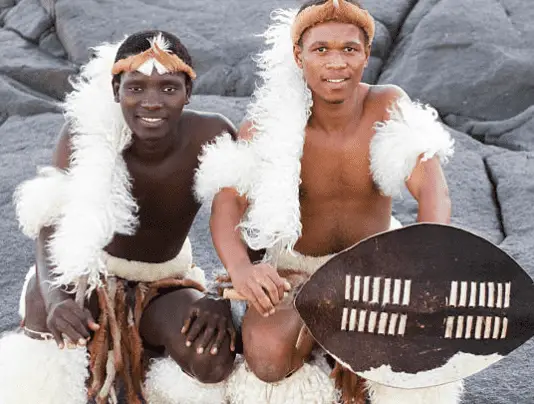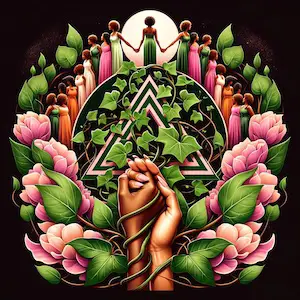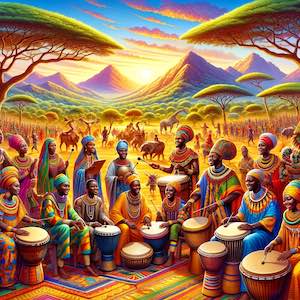In the heart of Southern Africa, the Zulu war chants reverberate through time, carrying the stories, emotions, and the indomitable spirit of the Zulu people. These chants, more than mere musical expressions, are powerful artifacts of history, culture, and identity. They resonate with the strength and unity of a nation that has stood resilient through the tides of time.
This article embarks on a journey into the captivating world of Zulu war chants, exploring their origins, significance, and the profound impact they had in shaping the dynamics of warfare and society. From the rhythmic beats that stirred the hearts of warriors to the evocative words that unified a people, Zulu war chants are a testament to the enduring legacy of the Zulu nation.

Table of Contents
Introduction to Zulu War Chants & Their Origins
The haunting melodies and vigorous rhythms of Zulu war chants have resonated through the rolling hills of South Africa for centuries, encapsulating the fierce spirit and rich heritage of the Zulu nation. These chants, more than mere musical expressions, serve as profound embodiments of culture, history, and identity, deeply interwoven into the social fabric of the Zulu people.
The genesis of Zulu war chants is as ancient and profound as the history of the Zulu nation itself. Emerging from the verdant landscapes of South Africa, these chants were crafted not only as a form of artistic expression but also as a pivotal means of communication and storytelling. In the tapestry of Zulu culture, the chants painted vivid narratives, conveying tales of valor, unity, and the cyclical dance of life and death.
At the heart of these war chants lies the Zulu warrior’s spirit, a force that binds the past with the present, the living with the ancestors. The chants were not mere preludes to battle but sacred rituals, resonating with the collective consciousness of the Zulu people. As the rhythmic pounding of the drums merged with the harmonious blend of voices, the war chants transformed into a powerful medium, channeling the wisdom of ancestors and invoking the strength of the warriors.
The origin of these chants can be traced back to the early days of the Zulu kingdom, a time when music and warfare were profoundly intertwined. The Zulu war chants, characterized by their potent lyrics and compelling rhythms, were not only meant to inspire and invigorate the warriors but also to intimidate adversaries, casting an aura of might and fearlessness on the battlefield.
As the echoes of these ancient chants continue to reverberate through time, they carry with them the stories, emotions, and collective memories of the Zulu nation. The war chants of the Zulu stand as a timeless testament to their enduring legacy, a bridge connecting the ancient rhythms of the past with the pulsating beat of the present, forever resonating with the undying spirit of the Zulu people.
Zulu War Chants in Battles
Within the tempest of battle, Zulu war chants served as powerful psychological and strategic tools, shaping the dynamics of warfare and embodying the essence of the Zulu warrior spirit. These chants, far more than mere vocal expressions, were integral components of the Zulu military strategy, resonating with the thunderous beats of courage and the unyielding resolve of a people defending their land and heritage.
As Zulu warriors prepared to face their adversaries, the air would fill with the profound rhythm of their chants. Each word, each note, was imbued with the collective strength and bravery of the Zulu nation. The war chants functioned as a rallying cry, unifying the warriors under a common banner of resolve and shared purpose. In this communion of voices, individual fears were dissolved, replaced by a collective fervor that coursed through the ranks like a potent elixir of courage.
The strategic importance of these chants cannot be overstated. On the battlefield, the fierce cadence and piercing intensity of the Zulu war chants served to intimidate the enemy, casting an aura of invincibility around the Zulu warriors. The psychological impact was profound – adversaries were not merely confronting armed warriors but a force animated by the powerful legacy and unwavering spirit of the Zulu nation.
Moreover, the war chants were an essential means of communication during the tumult of battle. The rhythm and tempo of the chants could signal tactical shifts, direct movements, or inspire a ferocious charge. In the absence of modern communication, these chants were the sinews that held the Zulu battle strategy together, ensuring coordination and cohesion among the warriors.
Historical accounts of battles involving the Zulu nation often highlight the prominence and impact of these war chants. Notable confrontations, such as the Battle of Isandlwana, bear testimony to the formidable presence of the Zulu warriors and the chilling effect their chants had on their adversaries. In these moments, the war chants transcended their role as musical expressions, becoming emblematic of the Zulu resistance and resilience.
In essence, Zulu war chants were not mere background music to the theatre of war; they were active, dynamic participants in the unfolding drama of battle. Through the power of their voices, Zulu warriors harnessed the wisdom of their ancestors, the strength of their unity, and the depth of their cultural heritage, turning the war chant into a weapon as formidable as any spear or shield in their arsenal.
List of Zulu War Chants and Meanings
Zulu war chants, known as “izimbongi” or “impi shouts,” are more than just songs; they are powerful expressions of emotion, history, and identity. Each chant carries deep symbolic meaning, often reflecting the values, societal structures, and historical narratives of the Zulu people. Below is a list of some notable Zulu war chants, along with their meanings and the contexts in which they were traditionally used:
- Shaka Zulu’s Battle Cry (“Usuthu!”)
- Meaning: An invocation of the name of Shaka, the legendary Zulu king and warrior, “Usuthu” was a battle cry used to evoke the strength and prowess of Shaka’s legacy. It served to inspire warriors, reminding them of the courage and tactical genius that defined their great leader.
- Context: This chant was used to rally the troops and boost morale, especially before engaging in significant battles.
- “Umkhonto!” (The Spear)
- Meaning: “Umkhonto” refers to the spear, a central symbol in Zulu culture representing the warrior’s strength and skill. This chant celebrates the weapon’s power and the precision of the warriors wielding it.
- Context: The chant was often used during weapon drills and pre-battle rituals to focus the warriors’ minds on their upcoming tasks and to pay homage to the importance of their arms.
- “Izulu Lelamadoda” (The Sky of the Men)
- Meaning: This chant speaks to the courage and bravery of the Zulu warriors. It implies that the sky, or the heavens, is the domain of the brave and that true warriors will find their place there.
- Context: Typically sung during pre-battle ceremonies, this chant was used to instill a sense of bravery and destiny in the warriors, reminding them of the honor and glory that await the courageous.
- “Ingoma Enkulu” (The Great Song)
- Meaning: This chant is a celebration of the Zulu nation’s greatness, unity, and cultural richness. It is a reminder to the warriors of what they are fighting for – the preservation of their way of life and the greatness of their people.
- Context: Sung during communal gatherings and pre-battle preparations, this chant served to unify the warriors and foster a sense of collective identity and purpose.
- “Siyaya ePitoli” (We are Going to Pretoria)
- Meaning: A more modern chant, it symbolizes the Zulu people’s resistance and resilience during times of conflict, particularly during the colonial and apartheid eras. It expresses a determination to confront and overcome challenges, no matter how formidable.
- Context: Used in more recent historical contexts, this chant reflects the enduring spirit of resistance and the unyielding resolve of the Zulu people in the face of oppression.
- “Wen’ uyinkosi yami” (You Are My King)
- Meaning: This chant is an expression of loyalty and respect towards the leader or king, acknowledging his authority and the warriors’ allegiance to him. It emphasizes the unity and strength derived from a shared sense of purpose under a revered leader.
- Context: Typically used during gatherings or before going into battle, this chant reinforced the social hierarchy and the bond between the king and his warriors, reminding them of their duty to protect and serve their leader and nation.
- “Izwe lethu!” (Our Land)
- Meaning: This chant is a powerful assertion of ownership and connection to the land. It expresses the deep bond between the Zulu people and their territory, emphasizing that the land is an integral part of their identity and heritage.
- Context: Often sung during times of conflict or resistance, this chant served as a rallying cry for defending the homeland against encroachment or invasion, instilling a sense of pride and determination to protect the ancestral land.
- “Sizo Mphakamisa” (We Will Lift Him Up)
- Meaning: This chant signifies the support and elevation of a leader or a hero within the community. It’s a pledge of solidarity and a promise to uphold the leader’s vision and legacy.
- Context: Sung during celebrations or ceremonial events, this chant was used to honor and acknowledge the achievements of leaders or heroes, promoting unity and collective pride among the people.
- “Uyimbube” (You Are the Lion)
- Meaning: The lion, in Zulu culture, symbolizes strength, authority, and bravery. This chant is an accolade, likening the warrior or leader to a lion, acknowledging their courage, leadership, and dominance.
- Context: Used in both celebratory and motivational settings, this chant was a means to instill courage and honor, encouraging warriors to embody the fearless and majestic qualities of the lion in battle.
- “Inkunzi Ayihlabi Ngokumisa” (The Bull Does Not Boast About Its Strength)
- Meaning: This chant reflects a core Zulu principle – true strength is not in boasting but in resilience and capability. It’s a call to humility and strength, reminding warriors that true power lies in action rather than words.
- Context: Often recited during strategic meetings or quiet moments before the storm of battle, this chant served as a grounding mantra, focusing the mind on inner strength and the importance of strategic, rather than reckless, action.
Each of these chants is a thread in the rich tapestry of Zulu culture, weaving together tales of bravery, respect, unity, and an unbreakable bond with the land and community. They are not just historical artifacts but living expressions of a resilient and proud people, echoing through the ages with as much relevance and power today as in the times of their inception.
FAQs
What is the significance of Zulu war chants?
Zulu war chants are significant for their role in embodying the spirit, history, and identity of the Zulu nation. They were used to boost morale, communicate tactics, and intimidate opponents on the battlefield. Beyond warfare, these chants are important cultural expressions, reflecting the values, emotions, and collective memory of the Zulu people.
How were Zulu war chants used in battles?
In battles, Zulu war chants were used to rally the warriors, unify them under a common cause, and intimidate the enemy. They also served as strategic tools, with their rhythm and tempo helping to coordinate movements and tactics during the chaos of combat.
See Related Posts

Gregorian Christmas Chants

Love Spell Chants

Best Softball Chants for U12

AKA Sorority Chants

Argentina Football Chants

Short Chants and Cheers

Alabama Football Chants

Everything to Know About African Chants

